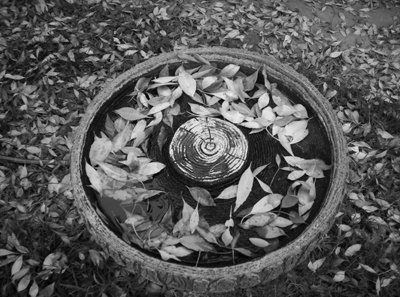All Nonfiction
- Bullying
- Books
- Academic
- Author Interviews
- Celebrity interviews
- College Articles
- College Essays
- Educator of the Year
- Heroes
- Interviews
- Memoir
- Personal Experience
- Sports
- Travel & Culture
All Opinions
- Bullying
- Current Events / Politics
- Discrimination
- Drugs / Alcohol / Smoking
- Entertainment / Celebrities
- Environment
- Love / Relationships
- Movies / Music / TV
- Pop Culture / Trends
- School / College
- Social Issues / Civics
- Spirituality / Religion
- Sports / Hobbies
All Hot Topics
- Bullying
- Community Service
- Environment
- Health
- Letters to the Editor
- Pride & Prejudice
- What Matters
- Back
Summer Guide
- Program Links
- Program Reviews
- Back
College Guide
- College Links
- College Reviews
- College Essays
- College Articles
- Back
SRI AUROBINDHAR
Sri Aurobindo was born Aravinda Akroyd Ghose in Kolkata (Calcutta), India, on 15 August, 1872 to Dr. Krishna Dhan Ghose, District Surgeon of Rangapur, Bengal and Swarnalata Devi, the daughter of Brahmo religious and social reformer, Rajnarayan Basu.[6] Dr. Ghose chose the middle name Akroyd to honour his friend Annette Akroyd.[7]
Aurobindo spent his first five years at Rangapur, where his father had been posted since October 1871. Dr. Ghose, who had previously lived in Britain and studied medicine at King's College, Aberdeen, was determined that his children should have an English education and upbringing free of any Indian influences. In 1877, he therefore sent the young Aurobindo and two elder siblings - Manmohan and Benoybhusan - to the Loreto Convent school in DarjeelingIn Puducherry (Pondicherry), Sri Aurobindo completely dedicated himself to his spiritual and philosophical pursuits. In 1914, after four years of concentrated yoga, Sri Aurobindo launched Arya, a 64 page monthly review. For the next six and a half years this became the vehicle for most of his most important writings, which appeared in serialised form. These included The Life Divine, The Synthesis of Yoga, Essays on The Gita, The Secret of The Veda, Hymns to the Mystic Fire, The Upanishads, The Renaissance in India, War and Self-determination, The Human Cycle, The Ideal of Human Unity, and The Future Poetry. Many years later, Sri Aurobindo revised some of these works before they were published in book formAurobindo’s observable political career lasted only four years, from 1906 to 1910. Though he had been active behind the scene surveying, organizing and supporting the nationalist cause, ever since his return to India, especially during his excursions to Bengal. This period of his activity from 1906-1910 saw a complete transformation of India's political scene. Before Aurobindo began publishing his views, the Congress was an annual debating society whose rare victories had been instances of the empire taking a favourable view to its petitions. By the time Aurobindo left the field, the ideal of political independence had been firmly ingrained into the minds of people, and nineteen years later, it became the official raison d'etre of the Congress.Aurobindo had become contemptuous of the British rule in India since his days as a student in England. While at the beginning of Aurobindo's educational career, his father had been a believer in the superiority of the British People, by the time Aurobindo was nearing the end of his education in England, Dr. Ghose started mailing Aurobindo newspaper clips of atrocities unleashed by the British on the Indian people. While at King's college, Aurobindo was drawn to Irish nationalists such as Charles Stewart Parnell. He wrote, in praise of Parnell :
"Patriots, behold your guerdon! This man found
Erin, his Mother, beaten, chastised, bound,
Naked to imputation poor, denied,
While alien masters held her house of pride"

Similar Articles
JOIN THE DISCUSSION
This article has 6 comments.

Mirra was born in Paris on February 21, 1878, to Turkish and Egyptian parents. Involved in the cultural and spiritual life of Paris, she counted among her friends Alexandra David-Neel. She went to Pondicherry on March 29, 1914, finally settling there in 1920. Sri Aurobindo considered her his spiritual equal and collaborator. After November 24, 1926, when Sri Aurobindo retired into seclusion, he left it to her to plan, run and build the growing Sri Aurobindo Ashram, the community of disciples that had gathered around them. Some time later when families with children joined the ashram, she established and supervised the Sri Aurobindo International Centre of Education (which, with its pilot experiments in the field of education, impressed observers like Jawaharlal Nehru). When Sri Aurobindo died in 1950, the Mother continued their spiritual work and directed the Ashram and guided their disciples. In the mid 1960s she personally guided the founding of Auroville, an international township endorsed by UNESCO to further human unity near the town of Pondicherry, which was to be a place "where men and women of all countries are able to live in peace and progressive harmony above all creeds, all politics and all nationalities." It was inaugurated in 1968 in a ceremony in which representatives of 121 nations and all the states of India placed a handful of their soil in an urn near the center of the city. Auroville continues to develop and currently has approximately 2100 members from 43 countries, though the majority consists of Indians, French, and Germans. The Mother also played an active role in the merger of the French pockets in India and, according to Sri Aurobindo's wish, helped to make Pondicherry a seat of cultural exchange between India and France. The Mother stayed in Pondicherry until her death on November 17, 1973. Her later years, including her myriad of metaphysical and occult experiences, and her attempt at the transformation at the cellular level of her body, are captured in her 13 volume personal log known as Mother's Agenda.